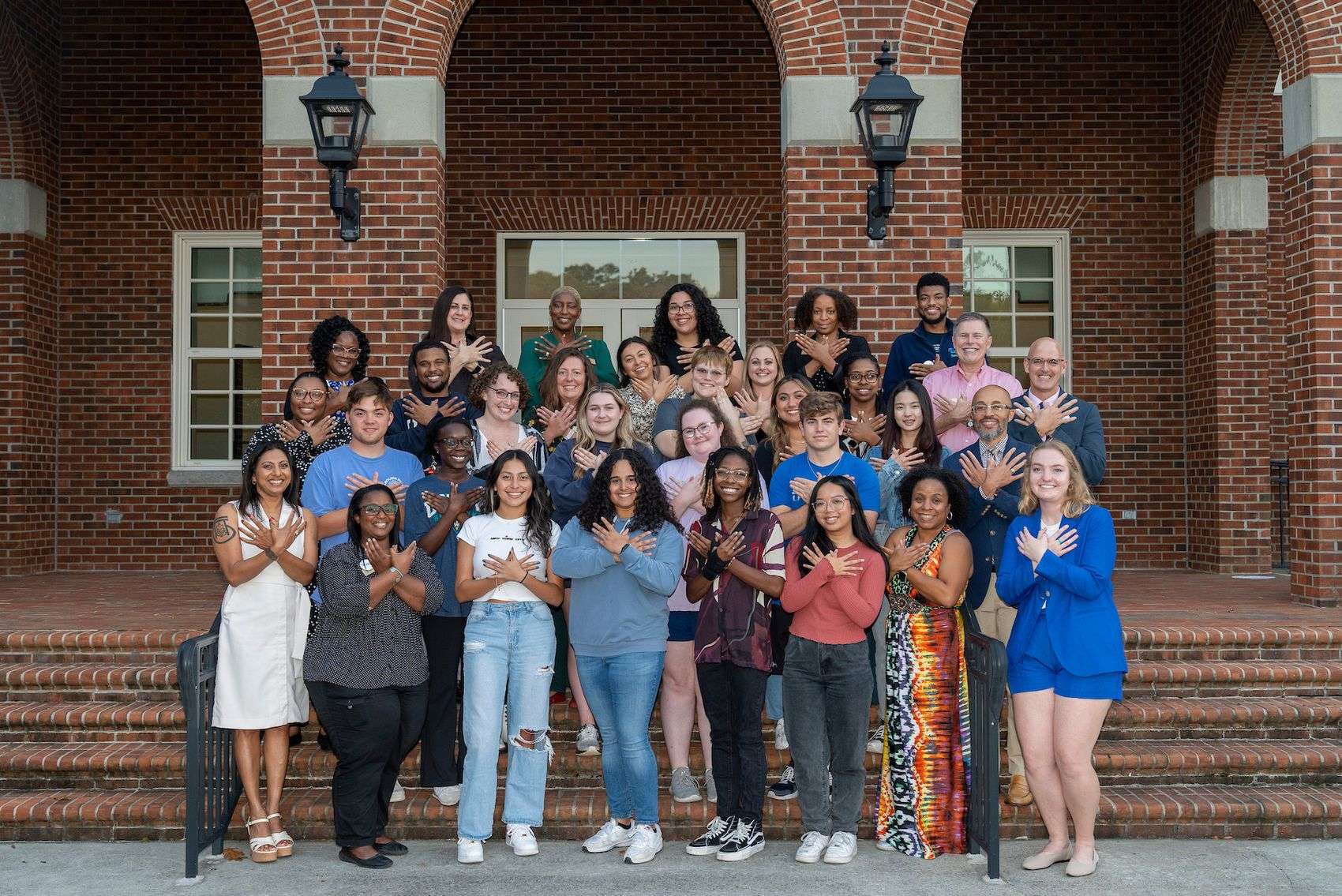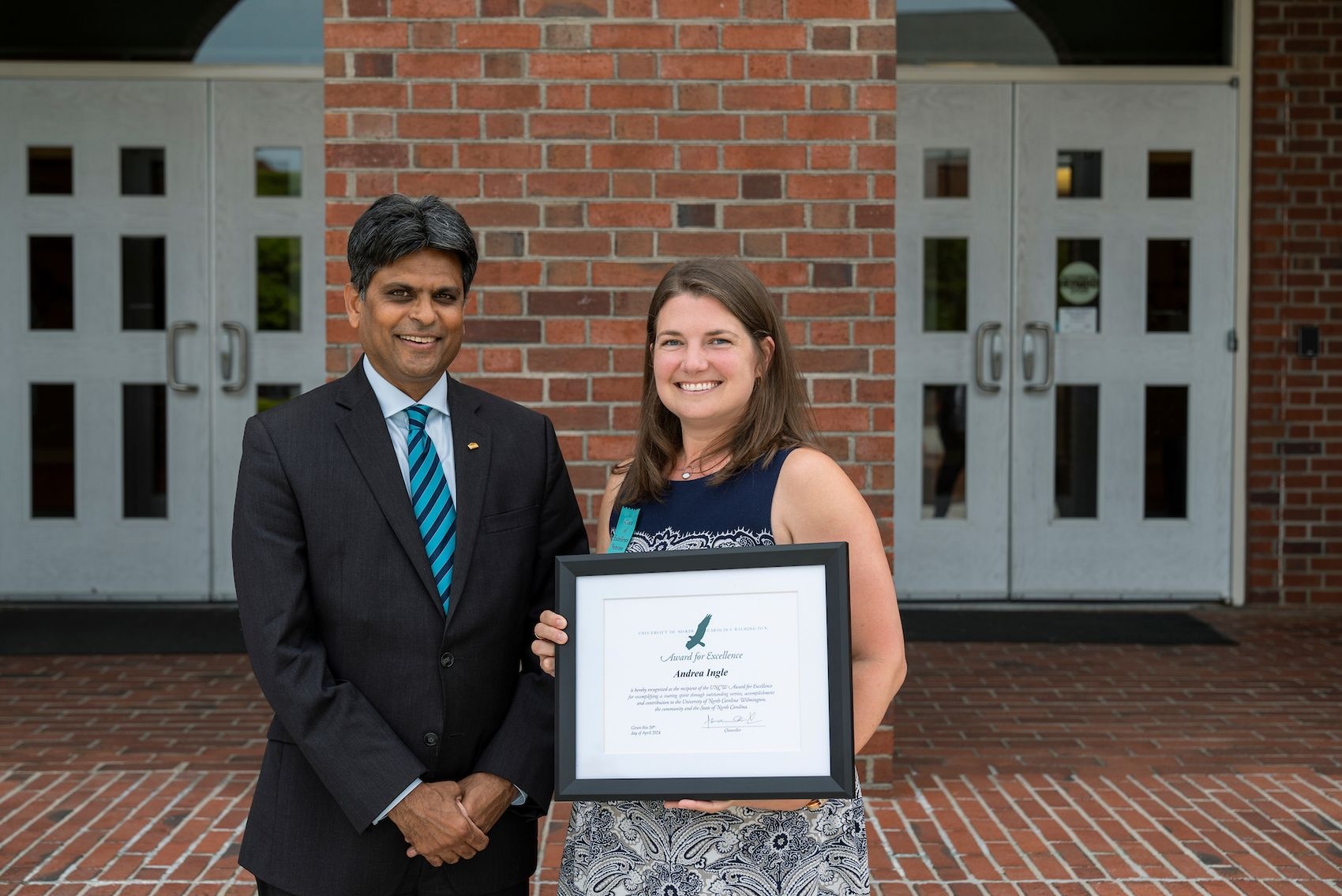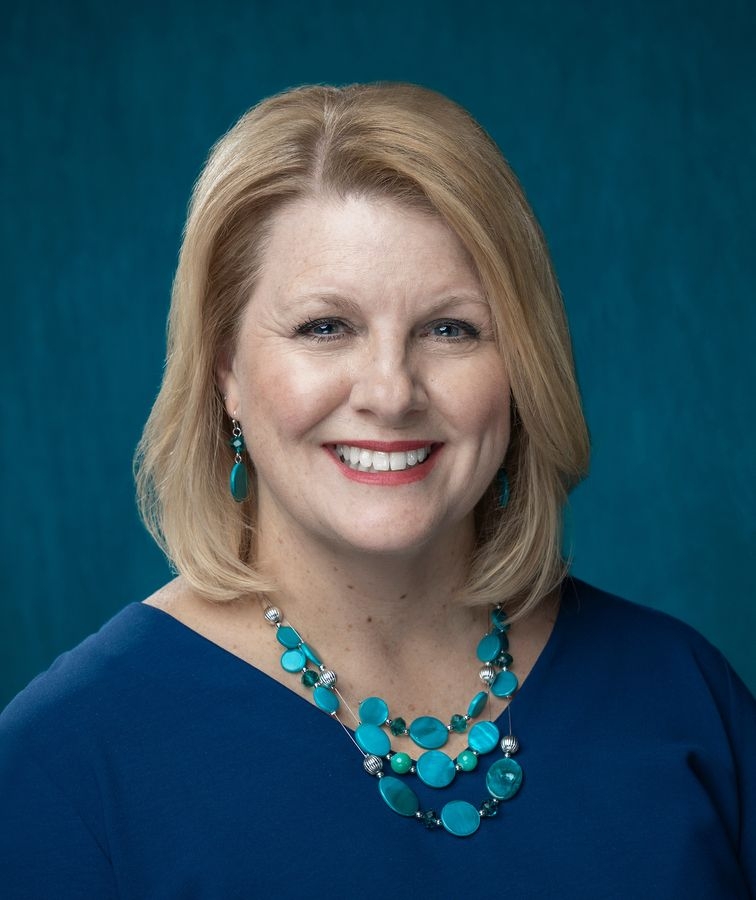Value: We honor the unique experiences of others with dignity and respect, commit to the highest professional and ethical standards, and educate students in an open and accountable environment.
Principle: Prioritize student growth and success in all decisions.
Value: We cultivate a community that fosters a profound sense of belonging, empowering students to broaden their perspectives, embrace new experiences, and actively engage in collaborative learning and community involvement, aligning with high-impact educational practices that enhance student engagement and success.
Principle: Create inclusive spaces where all students feel seen and valued.
Value: We honor the unique experiences of others with dignity and respect, commit to the highest professional and ethical standards, and educate students in an open and accountable environment.
Principle: Act with transparency, fairness, and ethical responsibility.
Value: We value collaboration as a cornerstone for success and hold a strong belief that working together with openness and respect leads to harnessing varied viewpoints, strengths, innovative solutions, and a stronger community.
Principle: Break down silos to coordinate across departments.
Value: We emphasize engagement as a vital path to personal growth and learning, building community, fostering intellectual curiosity, cultivating civic responsibility, and developing leaders by actively involving students in the campus environment and the broader community through experiential learning.
Principle: Encourage learning through meaningful involvement and co-curricular experiences.
Value: We prioritize a holistic approach to wellbeing, recognizing it as a dynamic state essential for personal and academic growth, and promote the exploration of physical, social, emotional, occupational, financial, intellectual, spiritual, and sustainable aspects to enhance meaningful involvement and overall campus culture.
Principle: Promote holistic wellness across all dimensions of student life.
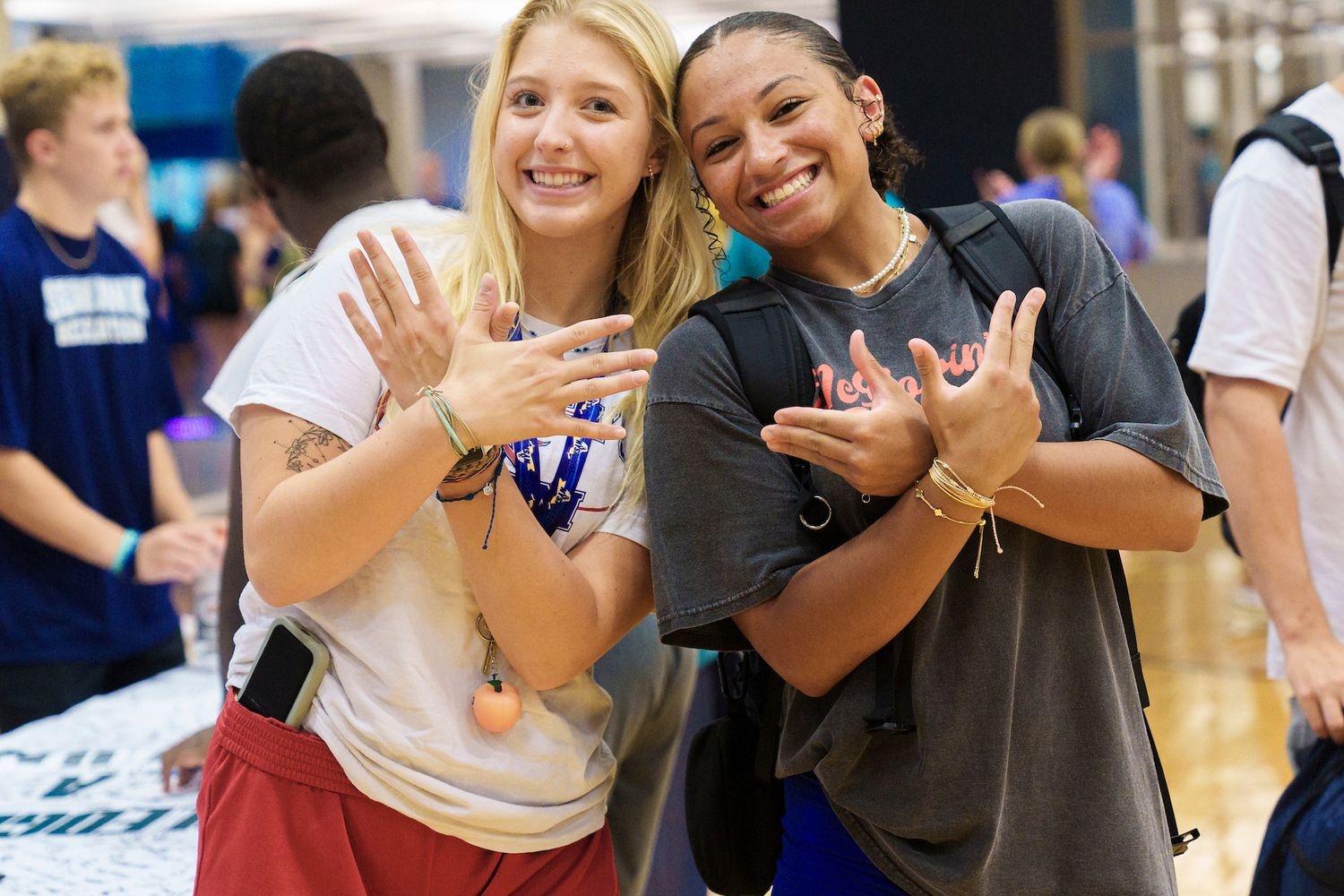
Students discover the Pat Leonard Student Recreation Center during Rock the Rec in August, 2023.
2023-24 Priorities and Accomplishments
- The Counseling Center expanded staffing and support to students by securing funding for eight additional full-time staff members. The footprint of the center was expanded to create offices for new staff and an additional group therapy room.
- Nine Student Health Center Healthy Hawks ambassadors promoted well-being resources and collaborated with campus departments to conduct 71 programs.
- CARE introduced a new Healthy Masculinity Program focused on relationship and communication skill building.
- Campus Life collaborated with the College of Health and Human Services to open a second Hawk’s Harvest food pantry located in Veterans Hall.
- Campus Recreation hosted free bi-weekly Learn to Swim clinics for students.
- The Counseling Center hosted a site visit by the JED Foundation, a non-profit that protects emotional health and prevents suicide for teens and young adults, to educate the foundation about UNCW’s mental health and well-being initiatives.
- Campus Recreation opened a new outdoor sports complex and hosted a sailing clinic, overnight kayaking, outdoor climbing and Spring Break excursion for students.
- The Career Center hosted the largest Career Fair to date with 175 employers and 1,464 participants.
- The Disability Resource Center partnered with the Career Center to implement the Workforce Recruitment Program, which offers federal internships to students with disabilities.
- The University Learning Center expanded supplemental instruction to include biology and nursing courses and partnered with University College on the Yet to Thrive (Y2T) initiative that targeted first-year students that had not yet engaged on campus.
- The Career Center increased its Employer Advisory Board membership from 12 to 18 companies to foster a more diverse range of internships and job opportunities for students.
- Housing and Residence Life hosted a successful Move-In event for UNCW’s largest class of 2,591 residential first-year students.
- Campus Life invested in the graduate student experience by hiring a new assistant director for Graduate Student Involvement in collaboration with the Graduate School.
- Housing and Residence Life conducted a demand study to determine the impact of projected enrollment growth on housing capacity and worked with the Master Planning group to project future on-campus housing needs.
- The Office of the Dean of Students hosted the third annual Academic Integrity Week with guest speaker Jesse Summers on the impact of generative artificial intelligence on academic integrity.
- Housing and Residence Life launched the Anchor co-curricular experience for residential students focused on belonging, life skills, career readiness and well-being.
- The Disability Resource Center established two new scholarships through the Lions Club of Wilmington and the Ballou family.
- Transition Programs launched the Transfer Connect program to assist transfer students in developing connections to peers and resources at UNCW.
- UNCW hosted its first stand-alone Graduate School commencement ceremony.
- Seahawks First was launched to support first-generation and foster care students, with a new trust fund dedicated to programming initiatives.
- CARE conducted intentional outreach to offices working with vulnerable populations including LGBTQIA, international, military/veteran and transfer students to offer customized presentations.
- The Counseling Center coordinated weekly drop-in sessions at Upperman African American Cultural Center and Centro Hispano.
- Campus Life coordinated inaugural student organization tailgates during basketball season.
- Student Affairs Assessment, Research and Planning conducted student focus groups to establish baseline data around a sense of belonging on campus.
- The Disability Resource Center collaborated with the Office of Diversity and Inclusion to host intersectional interviewing events.
- Student Community Engagement trained community partners on the implementation of the GivePulse platform for tracking student volunteer activities.
- Fraternity and Sorority Life completed an update of the Greek Standards and Assessment program.
- The North Carolina state legislature allocated $500,000 to begin the development of an inaugural Comprehensive Transitions and Postsecondary Education (CTPE) program at UNCW to serve students with intellectual disabilities.
Student Spotlights
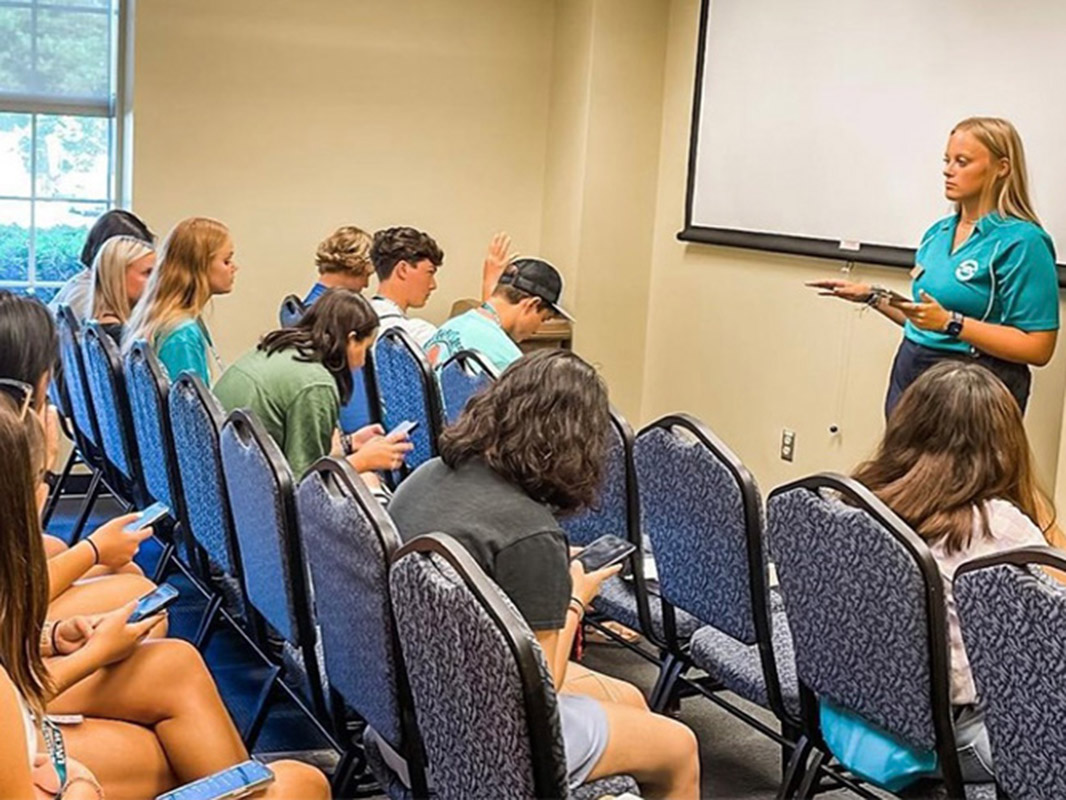
Shelby Kennedy
Class of 2024
Major: Public Health
"Campus Life provided me a space to work and grow when I didn't know where else to go following the conclusion of my second year as an Orientation Leader. I sought a position where I could still feel like a helpful asset on campus, while also being supported as a student, and I received so much more than that. With working for Campus Life came inspiring mentors, endless opportunities, amazing friends and unwavering support—something that I would never trade for the world."
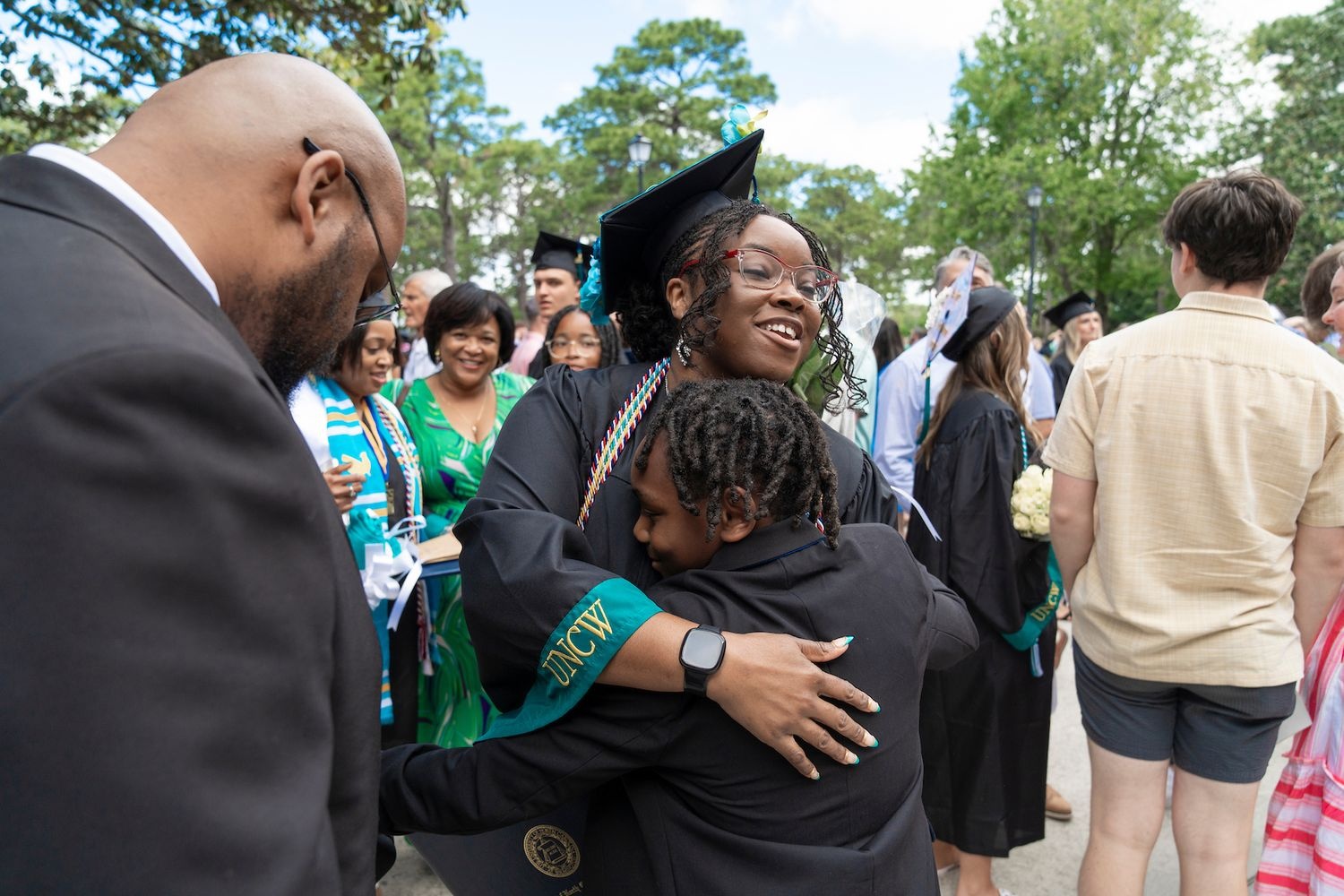
Jasmine Davis
Class of 2024
Major: Business Accountancy
"I want to express my heartfelt gratitude for the support and guidance provided me throughout my academic journey as a business accountancy major, a veteran, first-generation graduate and an aspiring financial planner. I want to extend my sincere gratitude to Latisha Corpening, assistant director of First Generation Programs. Your efforts in making a safe space for first-generation students have not gone unnoticed, and I am truly grateful for all that you have done."
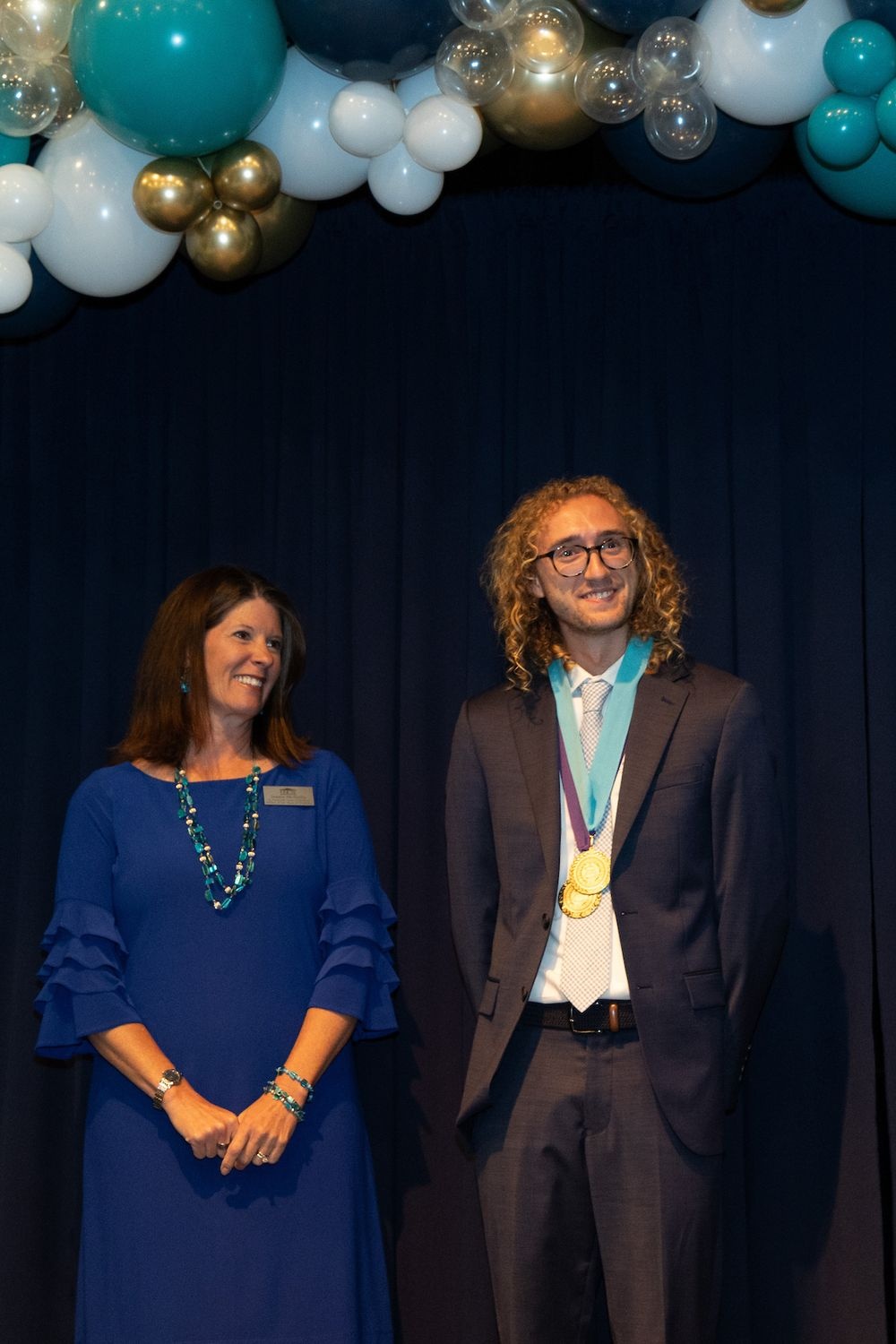
Ben Ondeck
Class of 2024
Major: Biology
"CARE connected me with some of the kindest and most determined people with the same goals of making our campus community more educated and empowered. I feel equipped after being a peer coordinator to advocate for myself and others, growing both professionally and personally from that experience.”

Marina Essa
Class of 2021
Major: Business Administration with a concentration in Marketing Strategy
"Collaborating with Emily Hawarny at the UNCW Career Center has been instrumental in shaping my post-graduation career path. Her guidance helped me clarify my career goals and evaluate my options for the future. This experience inspired me to pursue further education, leading me to enroll in the marketing analytics graduate program at NC State."
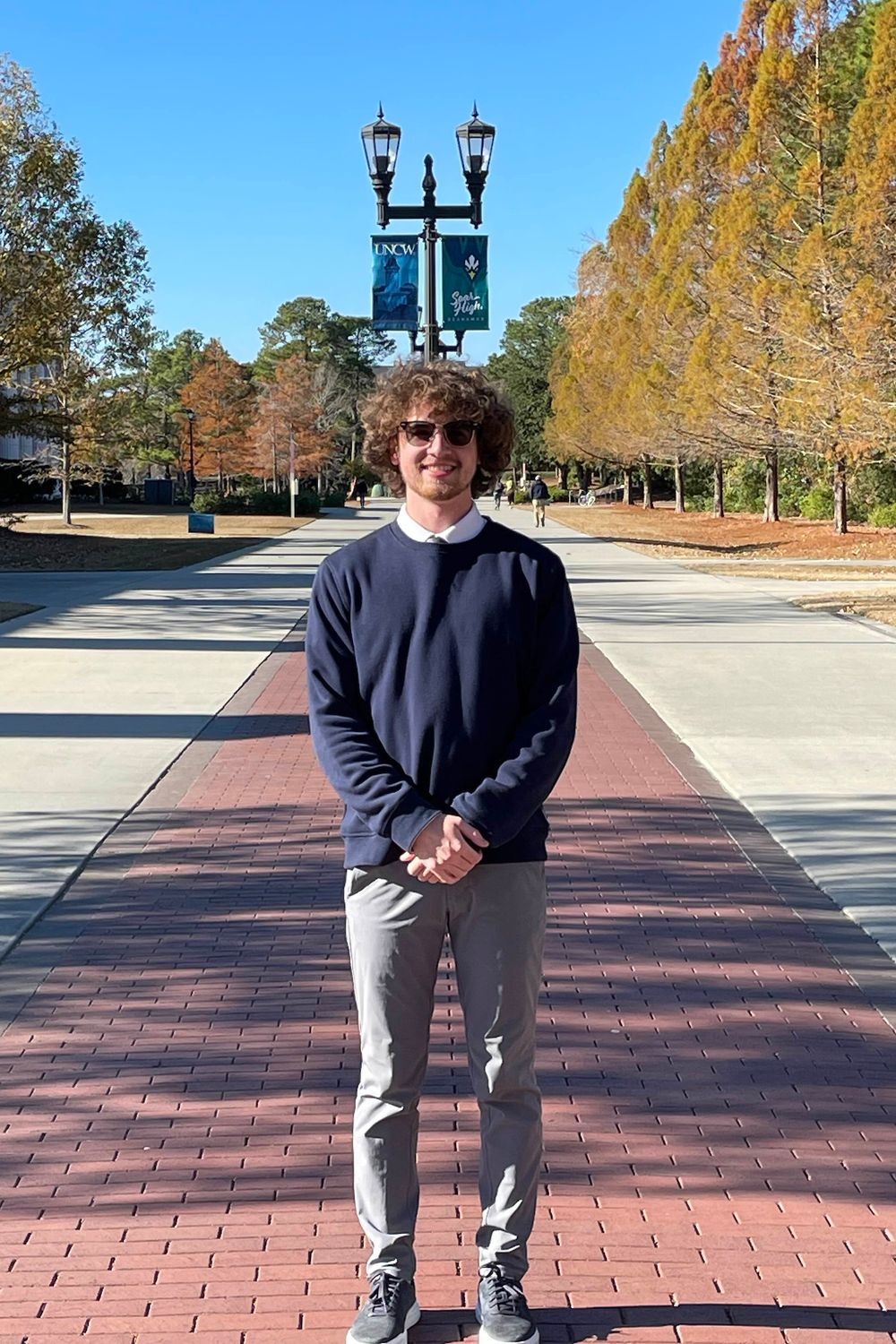
Justin Palmeri
Class of 2025
Major: Mathematics
"Working as a tutor in the STEM Lab has boosted my confidence and deepened my math skills. I believe teaching is the best way to learn, and helping others not only reinforces my knowledge but also feels really rewarding."

Melissa Story
Class of 2024
Major: Art History
"I wanted to extend my gratitude to the ULC for all the help afforded me by its many talented tutors. As a high school dropout and older student, I was insecure about my writing skills. The ULC tutors helped me gain confidence and work through ideas. There is no way I could have achieved departmental honors or graduated summa cum laude without relying on ULC tutors to help me edit my work. Nitya, Aidan, Jules, Morgan and Olivia were especially helpful. Thank you again for offering this service and for your gifted staff. Their support and encouragement made all the difference to me.”
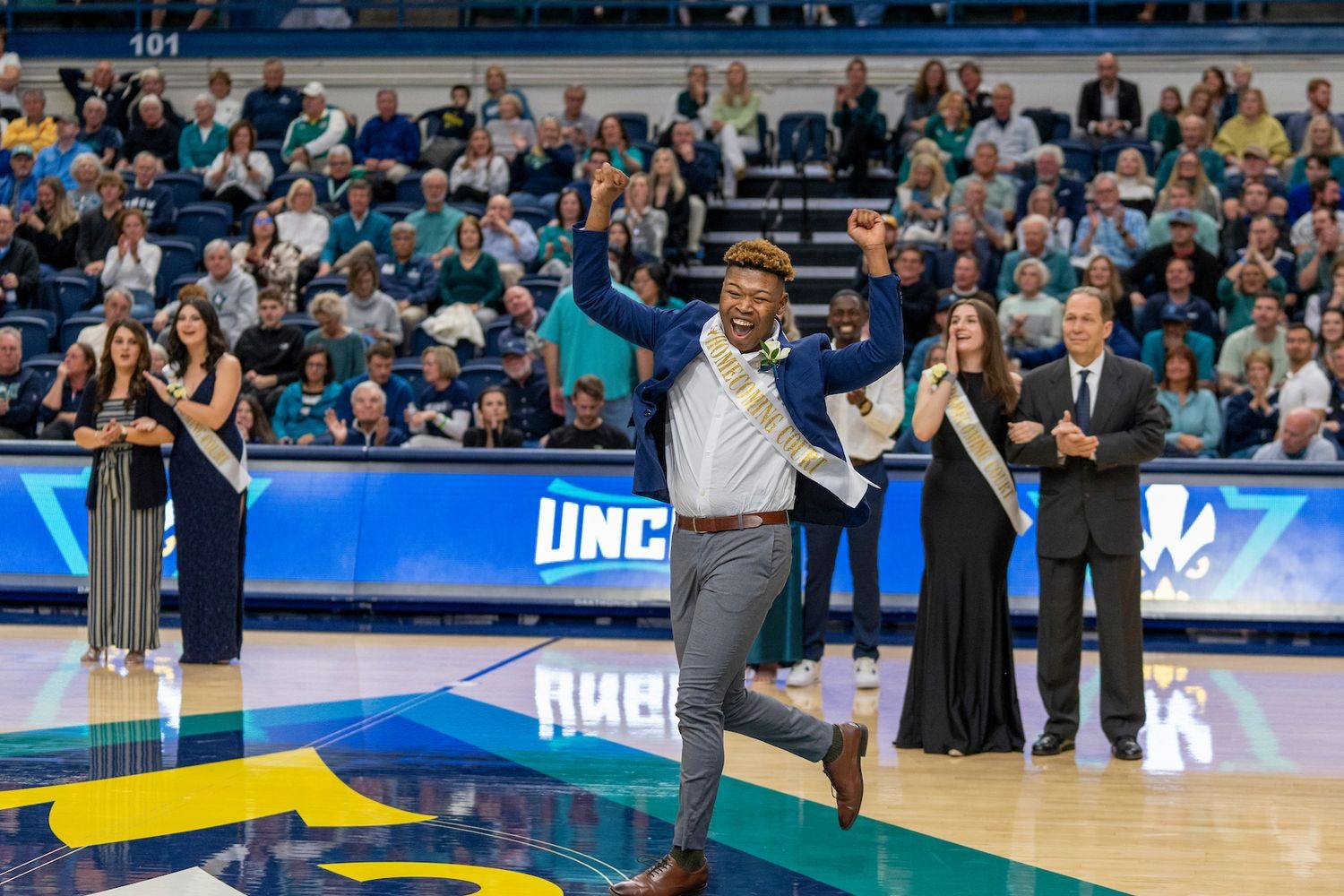
Cody Brandon
Class of 2024
Major: Sociology
"Diandre’ Richie and I are overwhelmed with gratitude on behalf of the student body, and we thank everyone for their continuous support throughout the years. More importantly though, this was a formative moment in UNCW’s history: the first time in which two openly gay, Black men were simultaneously awarded homecoming royalty. As a senior, this particular Homecoming was bittersweet, but I am more than excited to come back onto campus next year as an alumnus and participate in the festivities. Forever and always, wings up!”
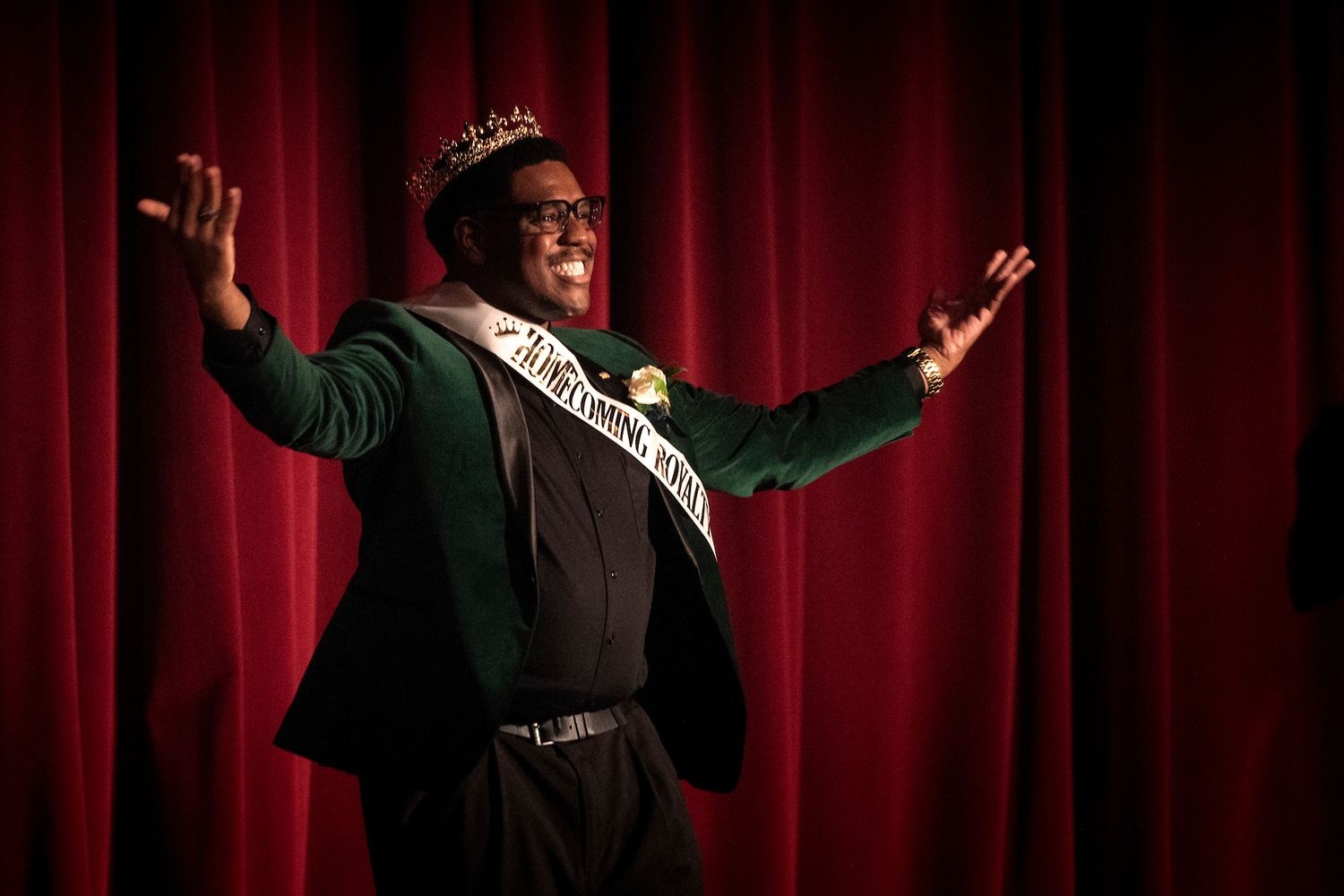
Diandre' Richie
Class of 2024
Major: Environmental Science with a concentration in Biological Sciences
"Winning Homecoming to me meant a lot because it was a full circle moment for me, and it encapsulated all I’ve done and achieved on and off campus. I’ve grown a lot as a student leader and being one of the winners of Homecoming shows that growth. History was made for the campus as well because Cody and I are the first openly Black gay males to win simultaneously. Homecoming is a time for present and past students to come together and being a part of that was great."
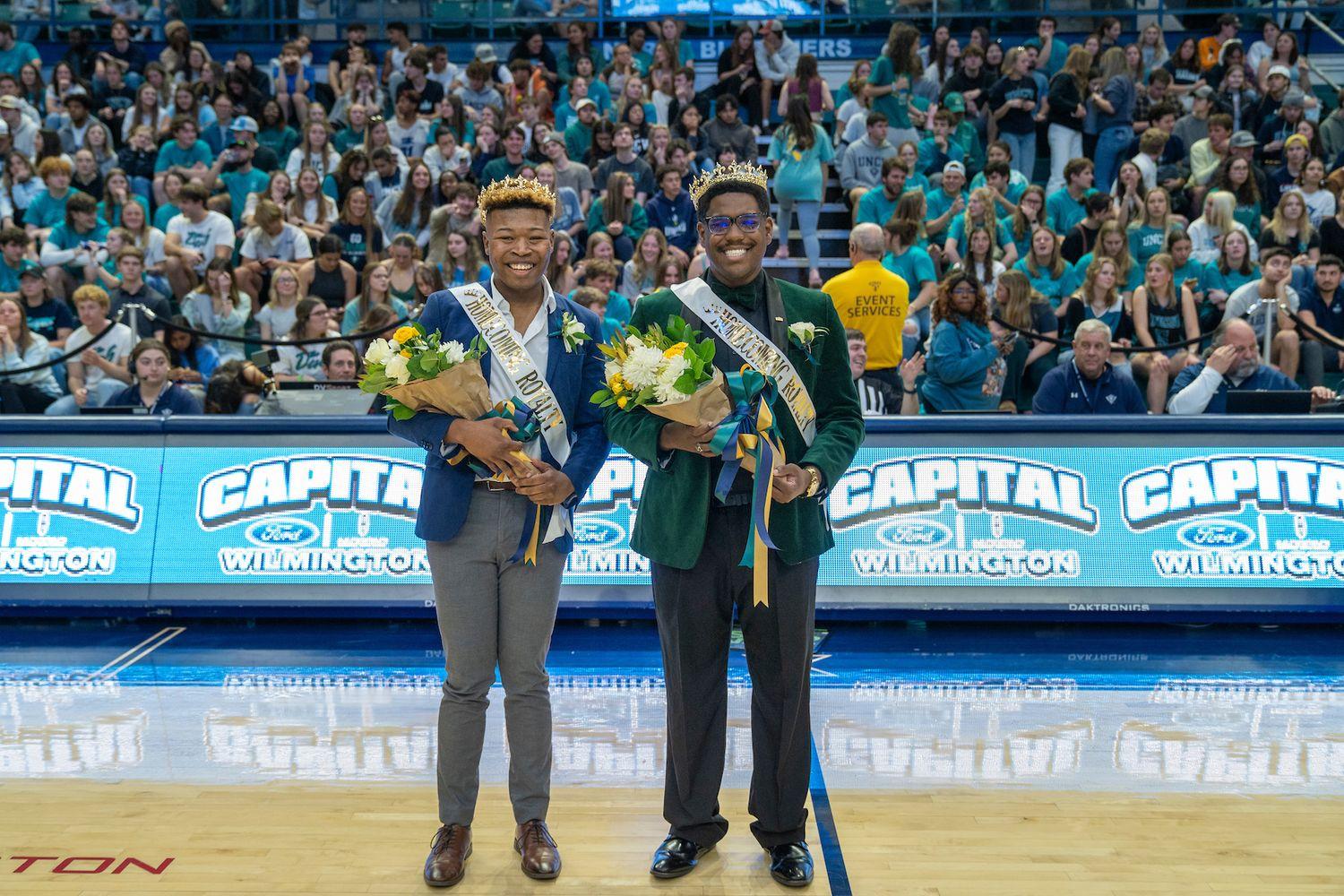
Cody Brandon and Deandre' Richie were chosen as UNCW Homecoming Royalty during the Men's Basketball game half-time show on Saturday, February 17, 2024.
Contact Student Affairs
Office of the Vice Chancellor for Student Affairs
Phone: 910.962.3117
Fax: 910.962.3905
Academic Year Office Hours
Monday - Friday: 8 a.m. - 5 p.m. (excluding holidays)
Summer Hours (May 12-August 8, 2025)
Monday - Thursday: 7:30 a.m. - 5:00 p.m.
Friday: 7:30 a.m. - 11:30 a.m.



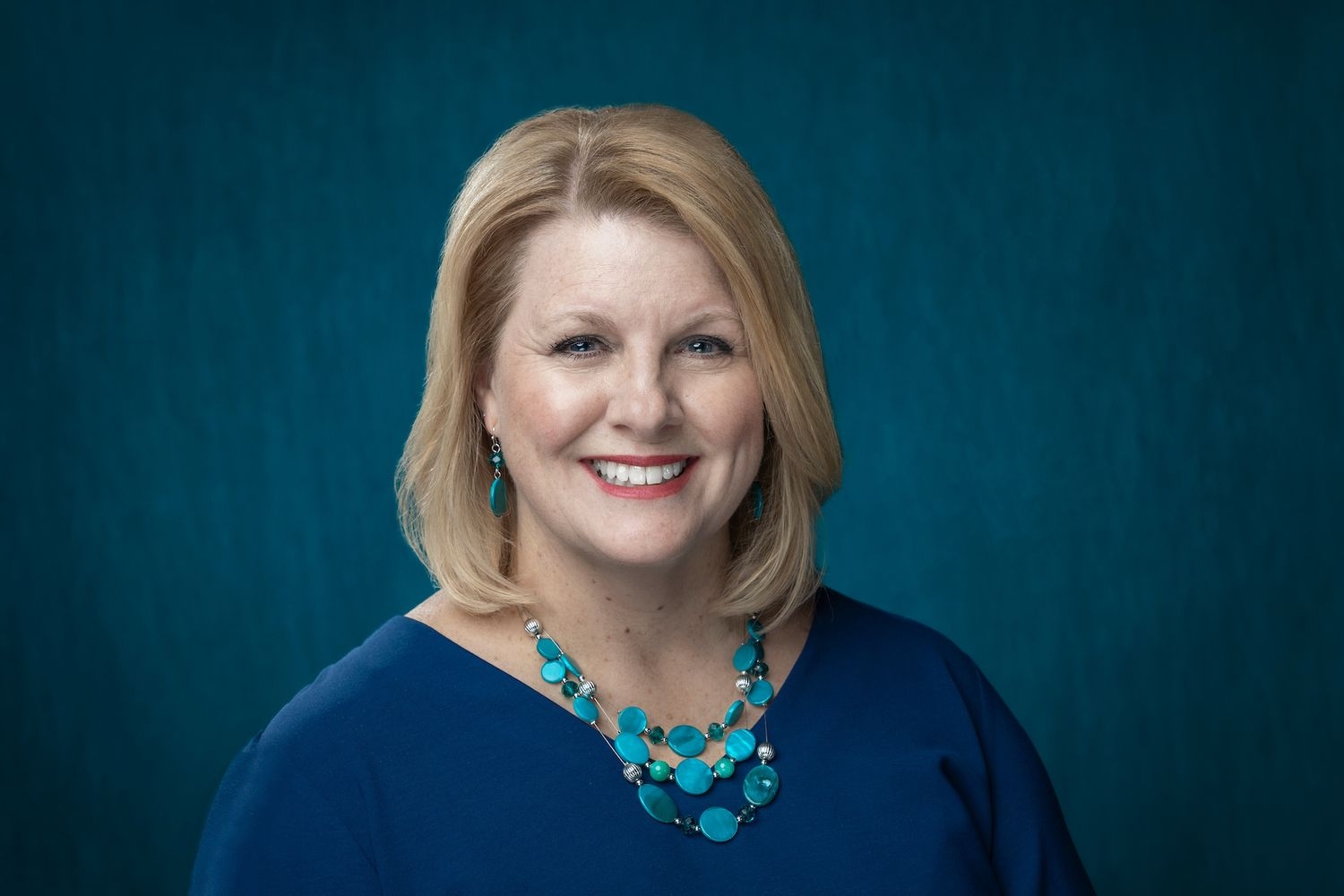
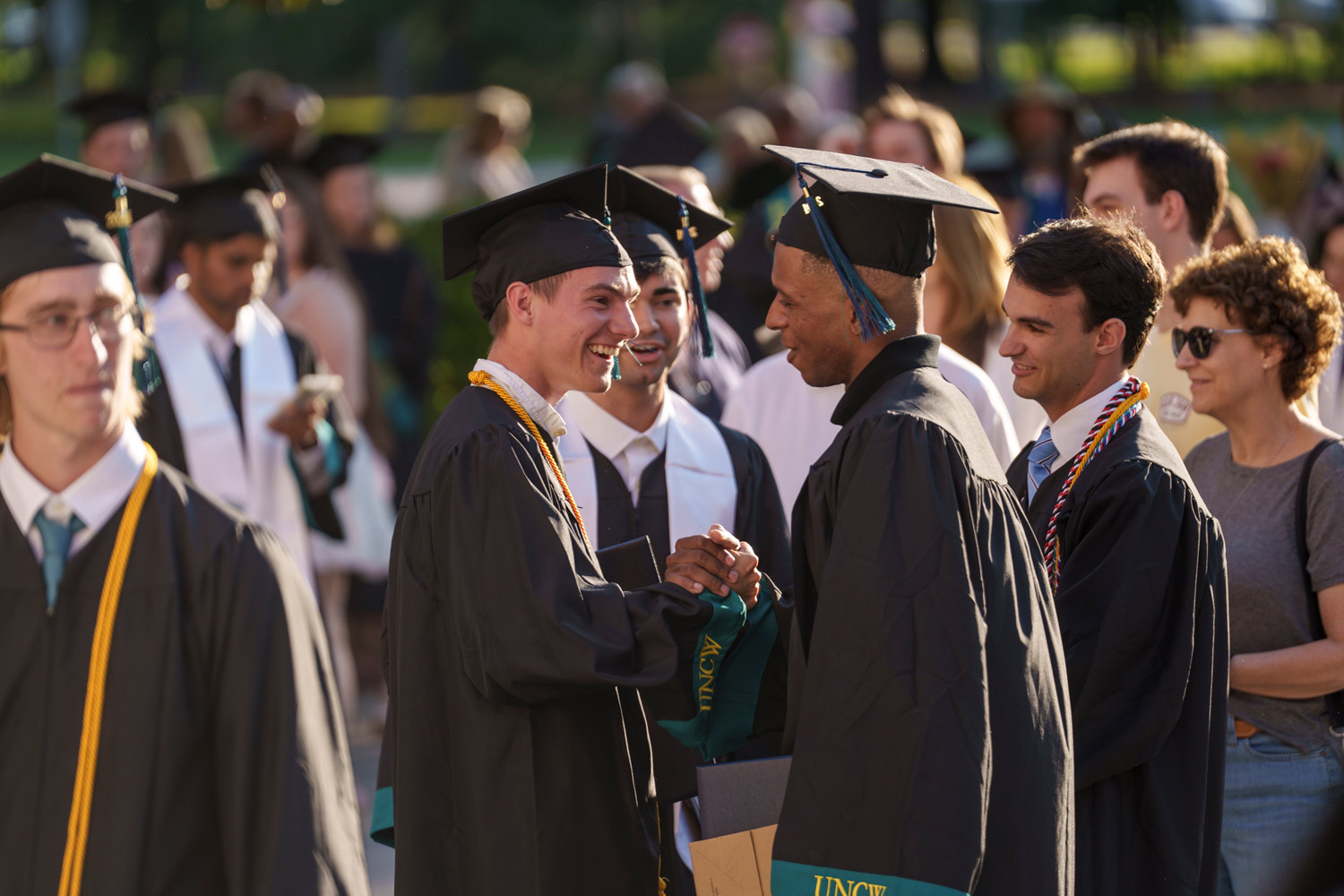

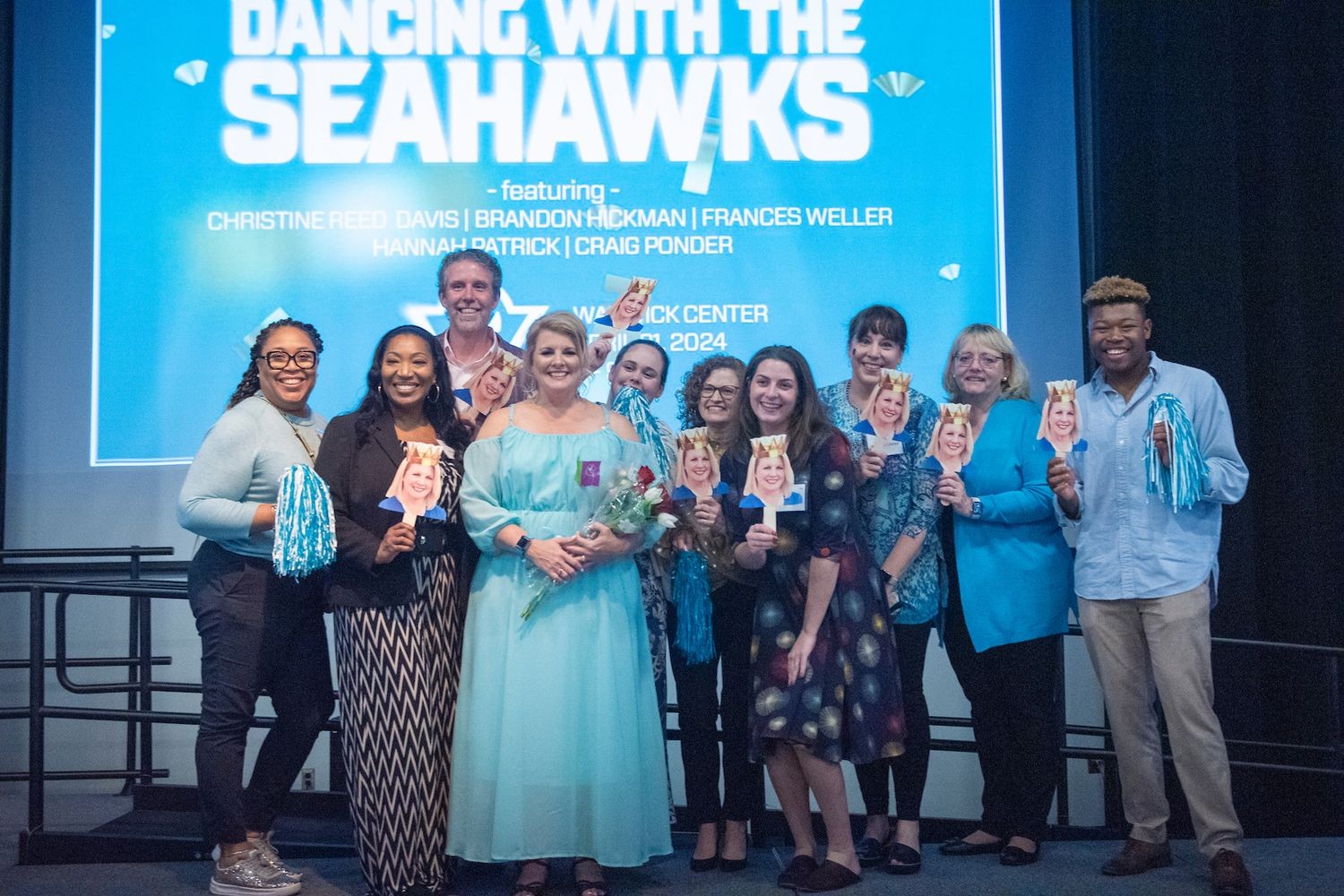
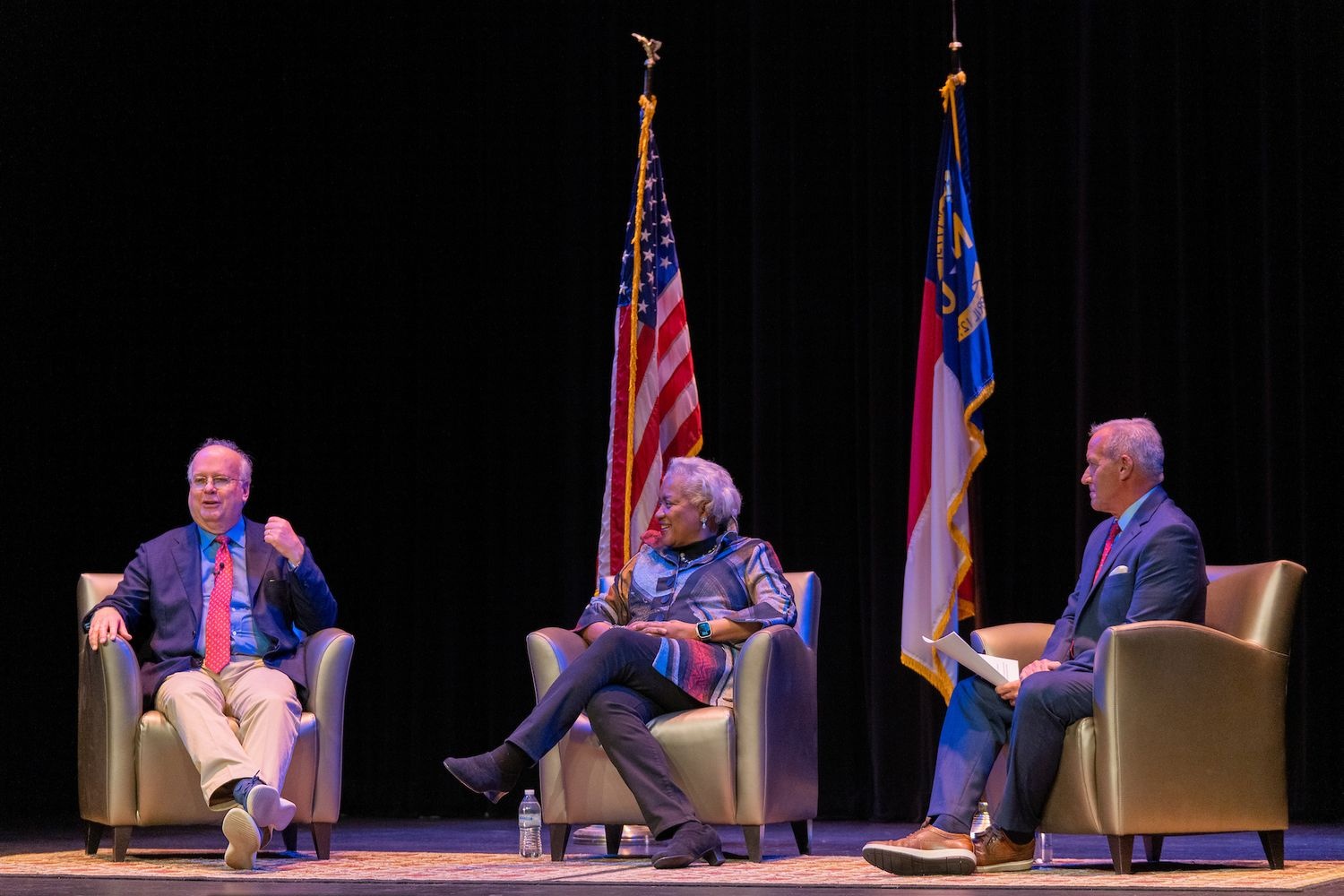 The inaugural Chancellor’s Dare to Learn Lecture, part of UNCW’s Leadership Lecture Series, took place on November 6 at Kenan Auditorium, bringing together renowned political strategists Donna Brazile and Karl Rove. The event aimed to foster engagement with contemporary issues by offering the campus and local community the chance to hear from thought leaders with deep-rooted Washington experience. Representing opposing sides of the political spectrum, Brazile and Rove provided a lively, informative, and at times humorous debate, moderated by WECT anchor Jon Evans. Their discussion explored the challenges of partisanship in Washington and offered actionable insights into key issues, including healthcare, taxes, and the evolving American electorate.
The inaugural Chancellor’s Dare to Learn Lecture, part of UNCW’s Leadership Lecture Series, took place on November 6 at Kenan Auditorium, bringing together renowned political strategists Donna Brazile and Karl Rove. The event aimed to foster engagement with contemporary issues by offering the campus and local community the chance to hear from thought leaders with deep-rooted Washington experience. Representing opposing sides of the political spectrum, Brazile and Rove provided a lively, informative, and at times humorous debate, moderated by WECT anchor Jon Evans. Their discussion explored the challenges of partisanship in Washington and offered actionable insights into key issues, including healthcare, taxes, and the evolving American electorate.